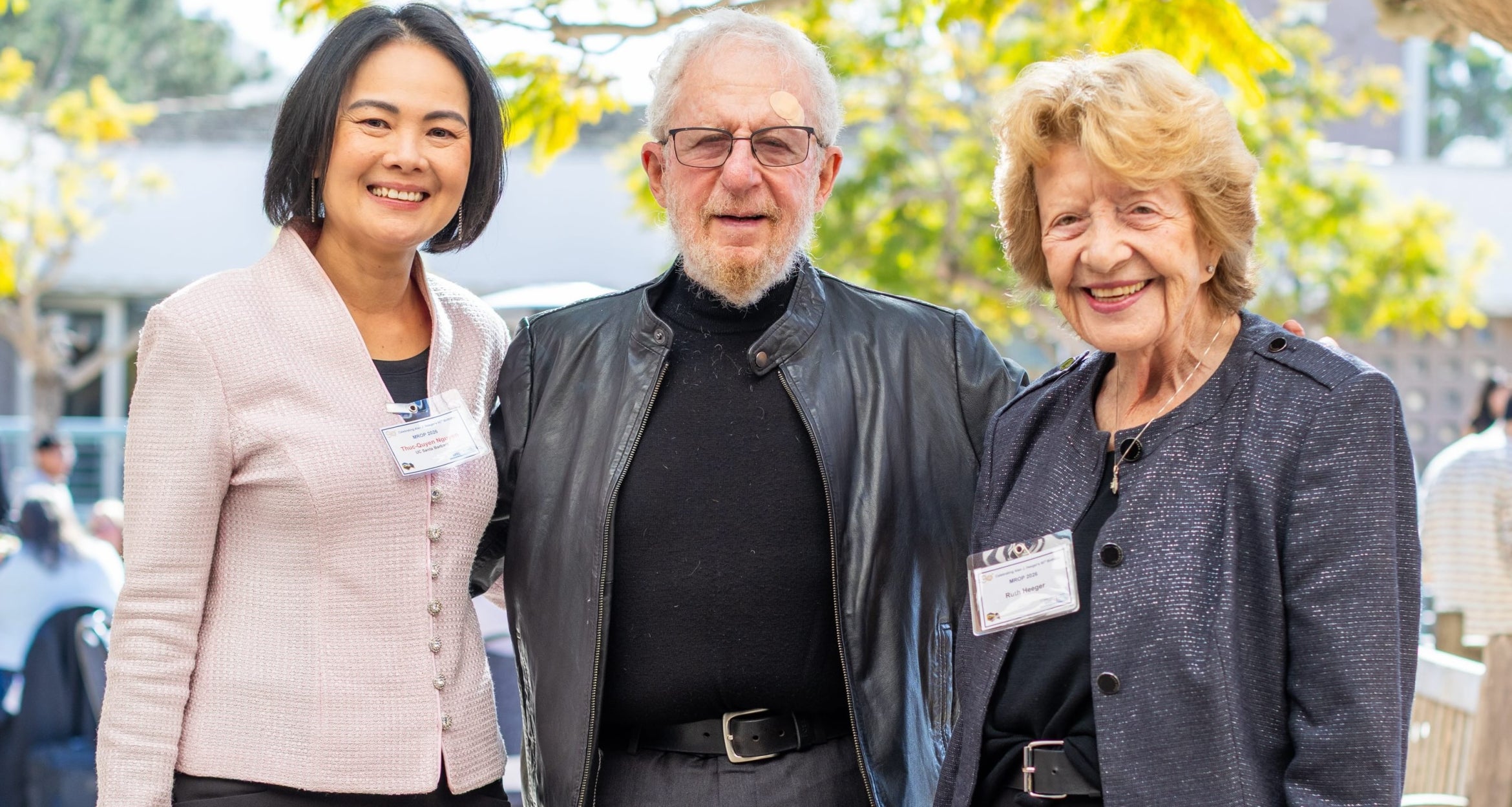National Science Foundation Extends Funding for Nanotechnology Internship Program at UC Santa Barbara
The National Science Foundation (NSF) has committed $417,822 to continue funding UC Santa Barbara's innovative Internships in Nanosystems Science, Engineering and Technology (INSET) program.
The INSET program offers California community college students an eight-week paid summer internship that engages them in the work of leading nanotechnology scientists and scholars on the UCSB campus. The program is hosted by the California Nanosystems Institute (CNSI) through its Center for Science and Engineering Partnerships (CSEP), in collaboration with UCSB's NSF Center for Nanotechnology in Society (CNS-UCSB), the Materials Research Laboratory (MRL), and faculty from Santa Barbara City College.
Now in its 10th year, the 2011 INSET program includes 17 participating students from seven community colleges in Southern California who conduct original research projects under the guidance of faculty and graduate student mentors. Fourteen interns
engage in cutting-edge investigations with CNSI researchers to find new ways to manipulate materials and devices at the molecular scale. Three interns examine the societal and ethical impacts of new nanotechnologies under the guidance of researchers from CNS-UCSB.
In addition to honing their research skills, the students learn how to make scientific presentations and pursue professional networking opportunities.
Gino Graziano, a 2010 INSET intern, described his internship experience as "extremely interesting, and it drew on knowledge from different scientific disciplines, which I found very intriguing. I feel that the internship gave me great insight into how graduate level research is conducted, and the experience definitely contributed to my desire to attend graduate school."
Nick Arnold, professor of engineering at Santa Barbara City College and INSET co-principal investigator, partners with UC Santa Barbara staff and faculty to recruit and select interns, and helps the students adapt to their new roles as researchers.
He commented that INSET provides community college students with valuable opportunities to "pursue genuine research at all different phases, from initial concepts, to gathering final data, to formulating conclusions."
Megan Valentine, UCSB assistant professor of mechanical engineering and a co-principal investigator for INSET, noted that the program benefits both interns and their mentors.
"UCSB is proud to sponsor the INSET program, which has created partnerships and collaborations that have extended well beyond one summer," Valentine said. "The community college interns gain invaluable research experience and career development skills, and the graduate students learn how to effectively manage and mentor junior scientists."
In renewing funding for the program, NSF reviewers noted that INSET has an outstanding record of recruiting a diverse group of students, most of whom transfer successfully to four-year degree programs in science and engineering, and many of whom go on to further study. Of the 70 former INSET students who have completed their bachelor's degree, 31 are engaged in or have completed graduate study in universities across California and the U.S. –– all but one of them in science, engineering, mathematics, or medicine.
The 2011 INSET program started June 20 and ends Friday, August 12. Interns will present the results of their work at a poster session at Elings Hall on Thursday, August 11, 12:30-4 p.m. The public is invited to attend.
Related Links



